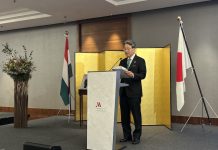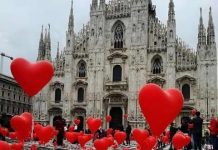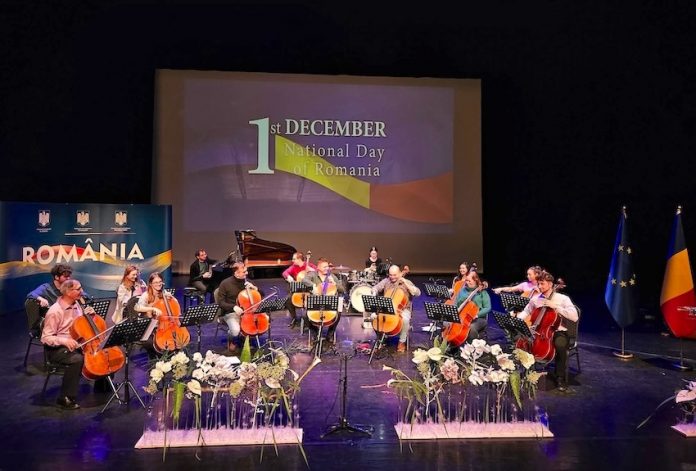“We do not choose for ourselves the world we live in, but each country can contribute to making it better”
Edited by Anna Popper
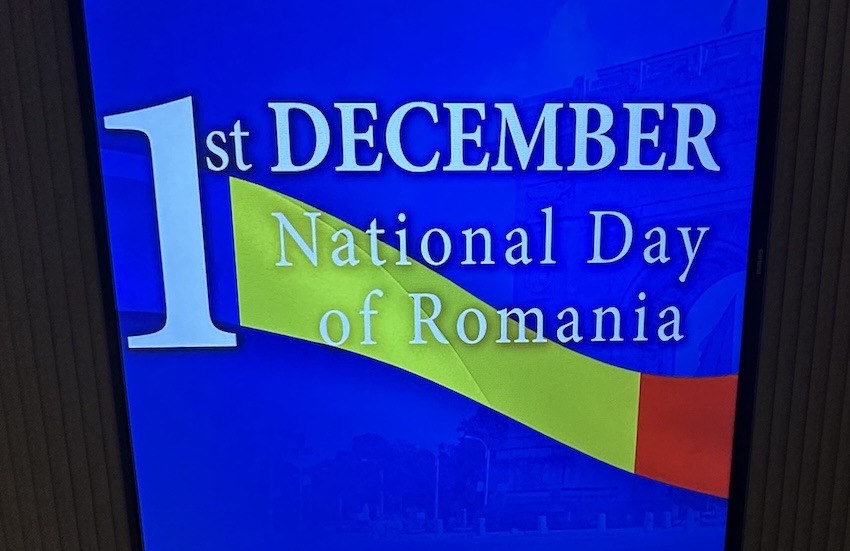
Romania’s National Day – Ziua Națională a României – marks a pivotal moment in the country’s history, commemorating the Great Union of 1 December 1918, which established modern Romania. This historic occasion is celebrated annually both at home and abroad.
In 2024, the Romanian Embassy in Hungary, in collaboration with the Romanian Cultural Institute (ICR) in Budapest, hosted a grand event in honour of this significant day, with extraordinary cultural performances at the National Dance Theatre in Millenáris Park, a prominent cultural hub on the Buda side of the city.
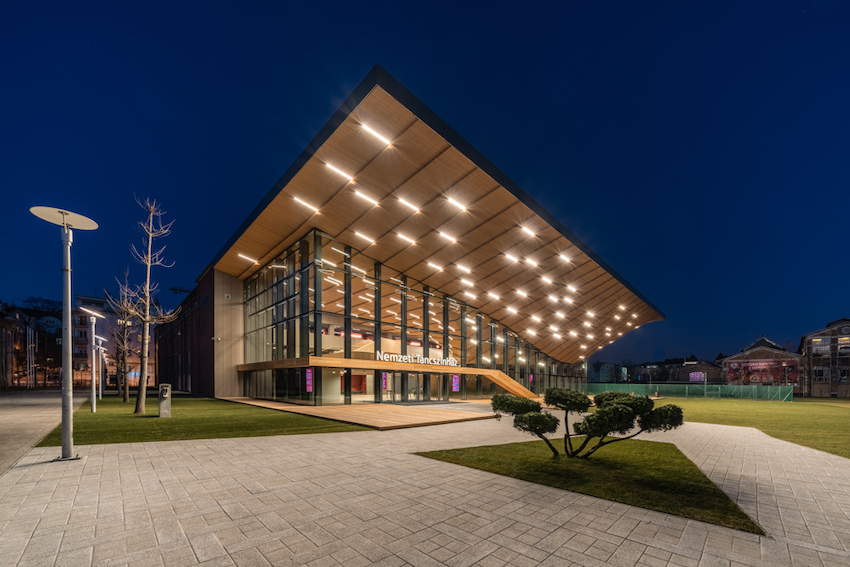
The theatre was adorned with Romanian symbols and flags, representing the three historical provinces that were united in 1918: Transylvania (blue), Wallachia (yellow), and Moldavia (red). The celebration drew around 400 attendees, including members of the diplomatic corps, senior executives, business and cultural leaders, as well as representatives of the large Romanian community in Hungary.
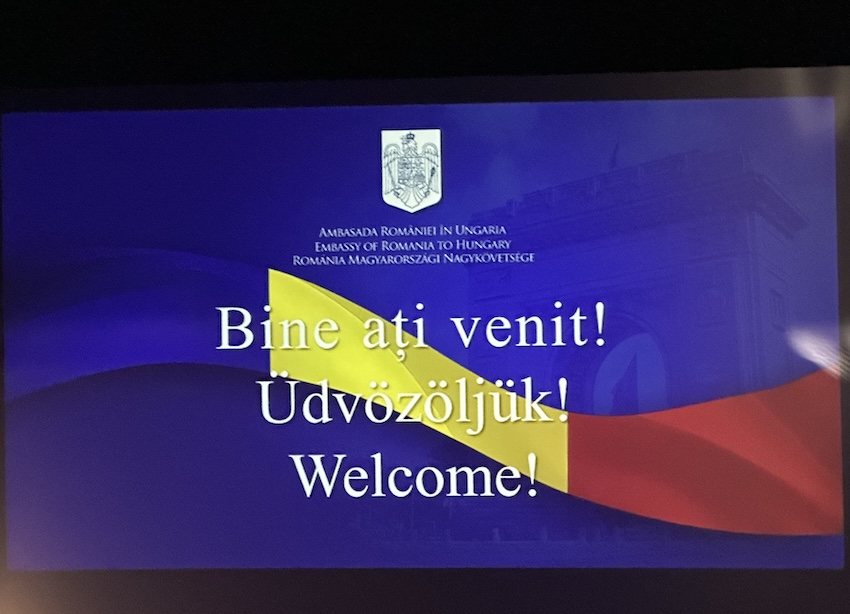
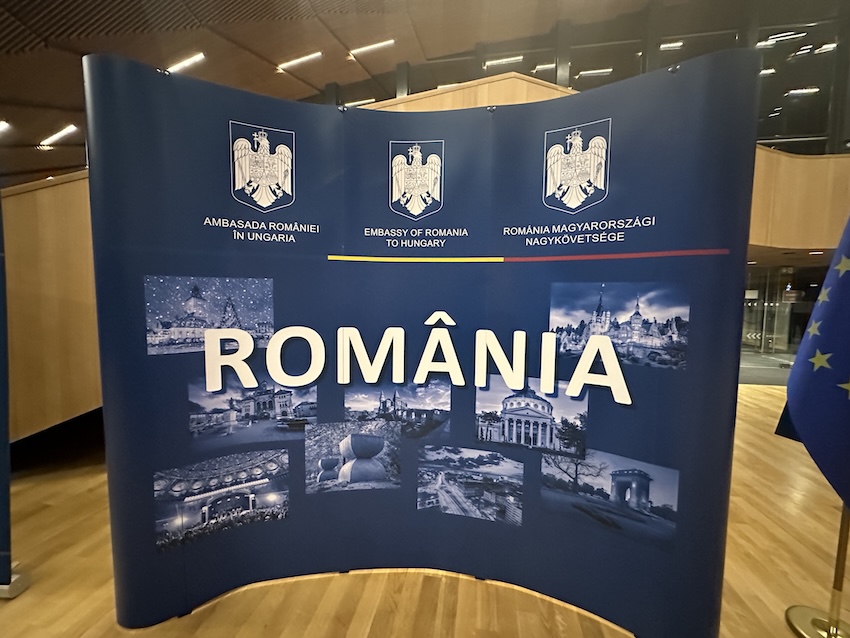
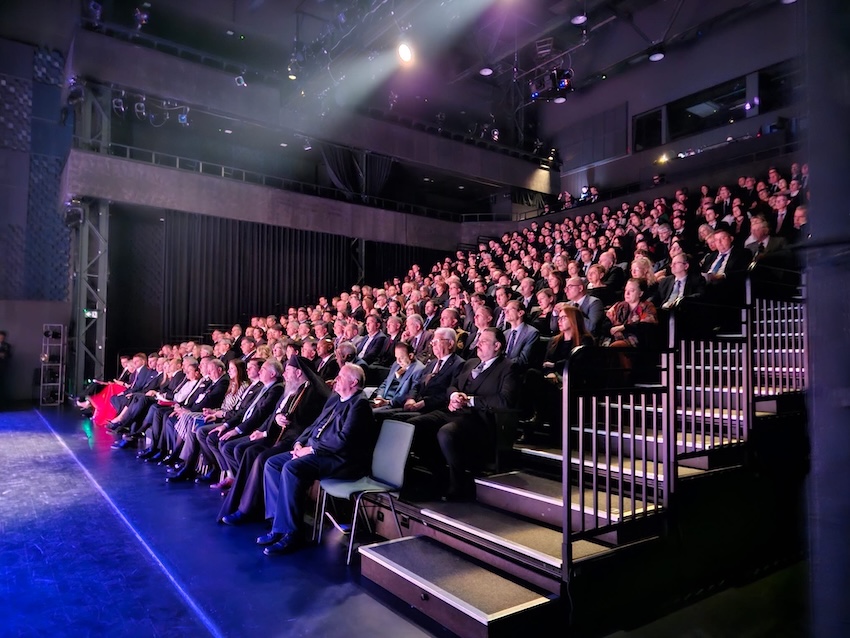
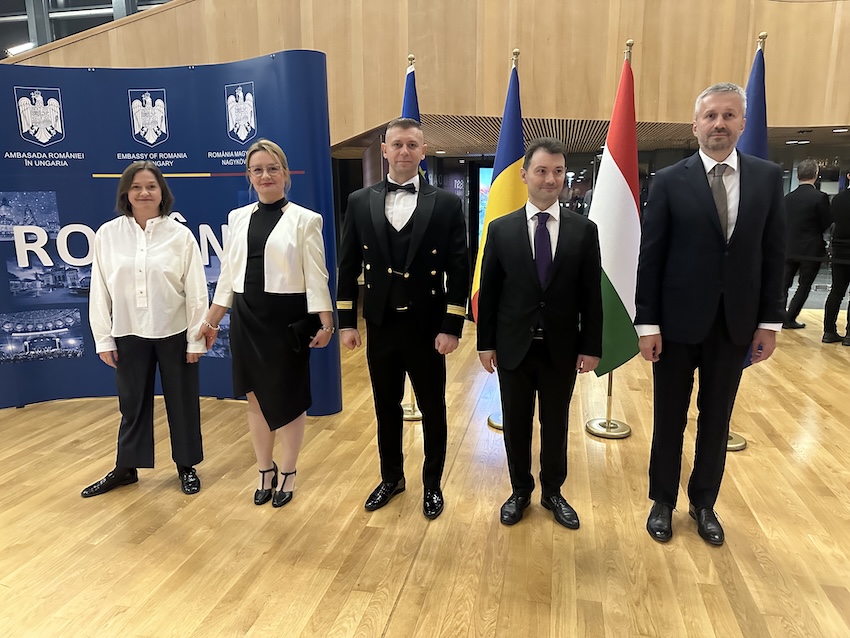
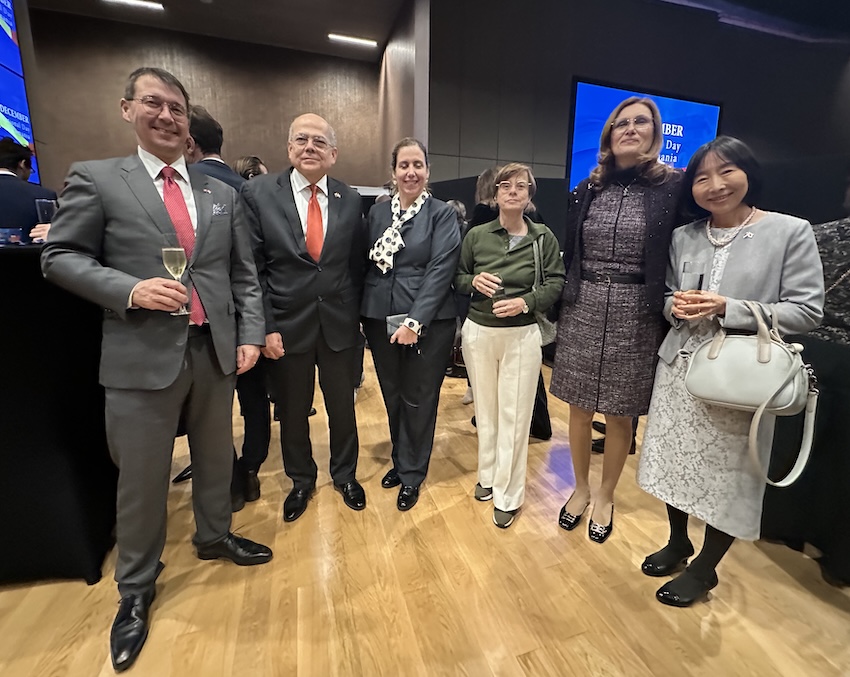
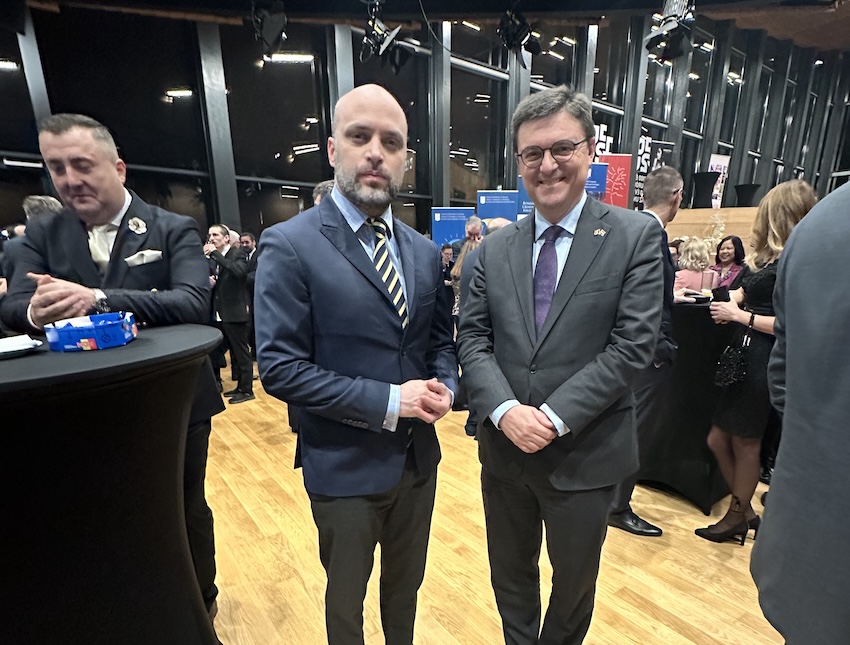
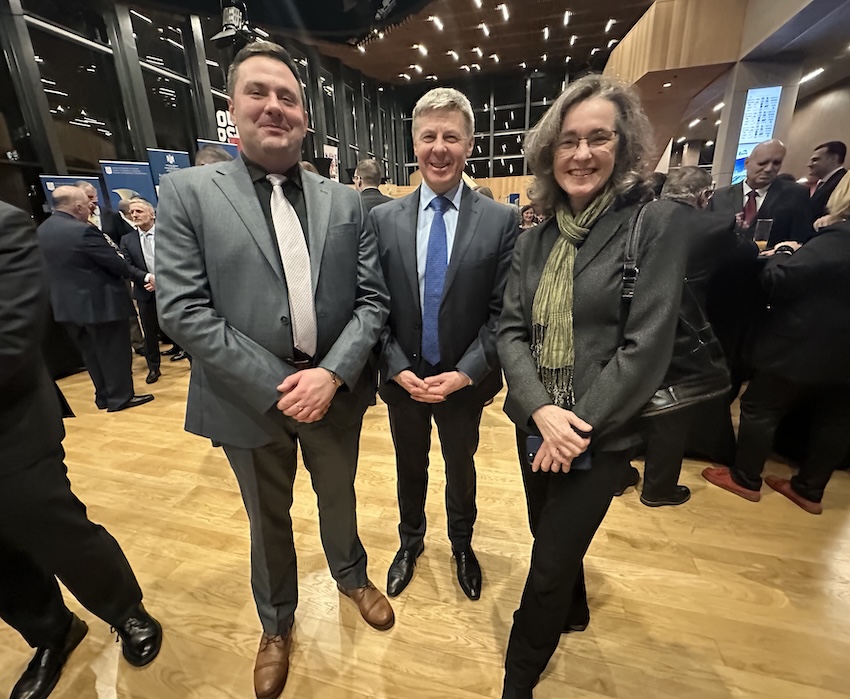
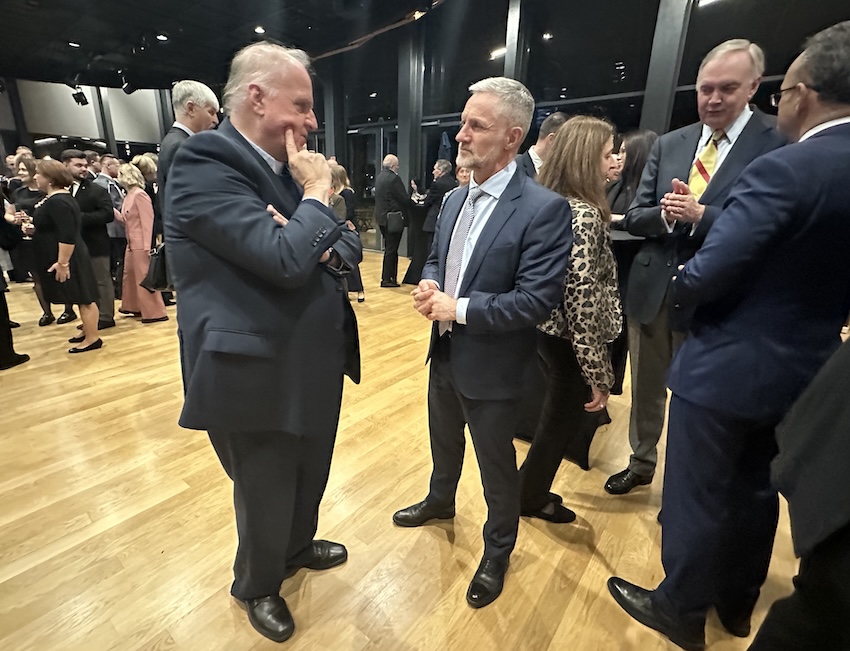
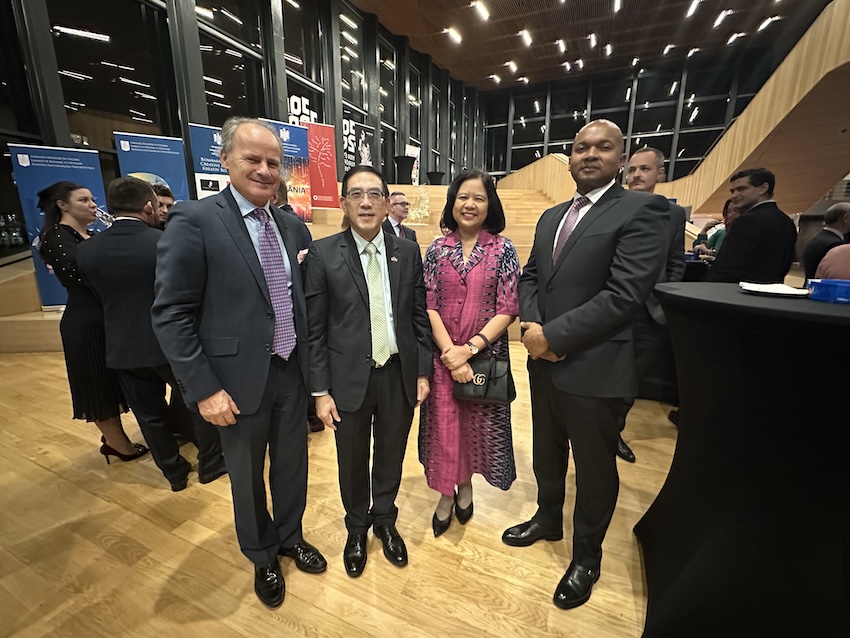
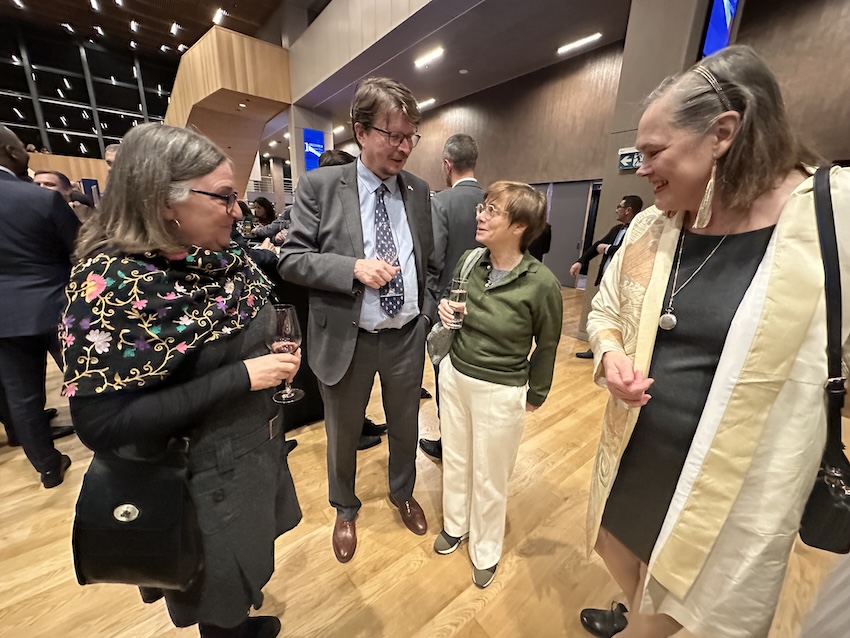
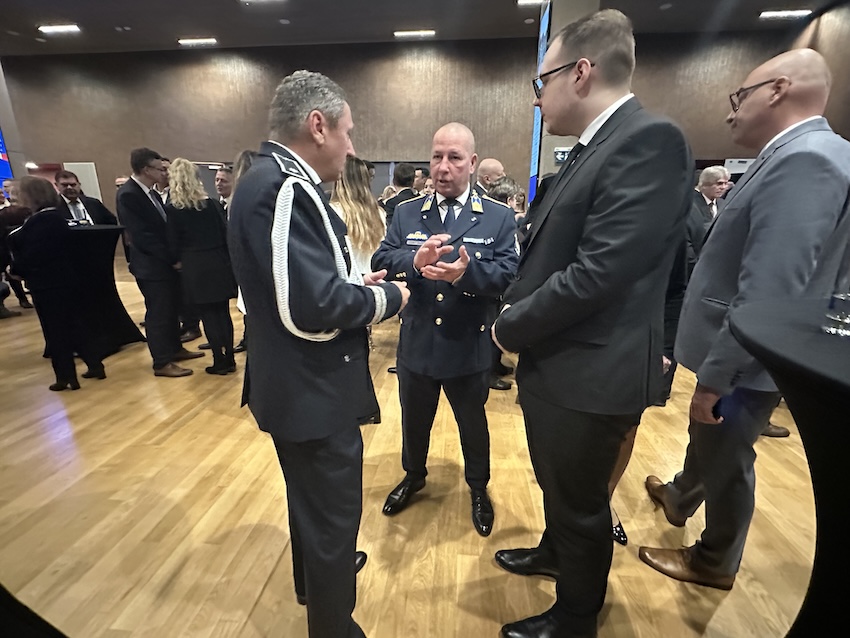
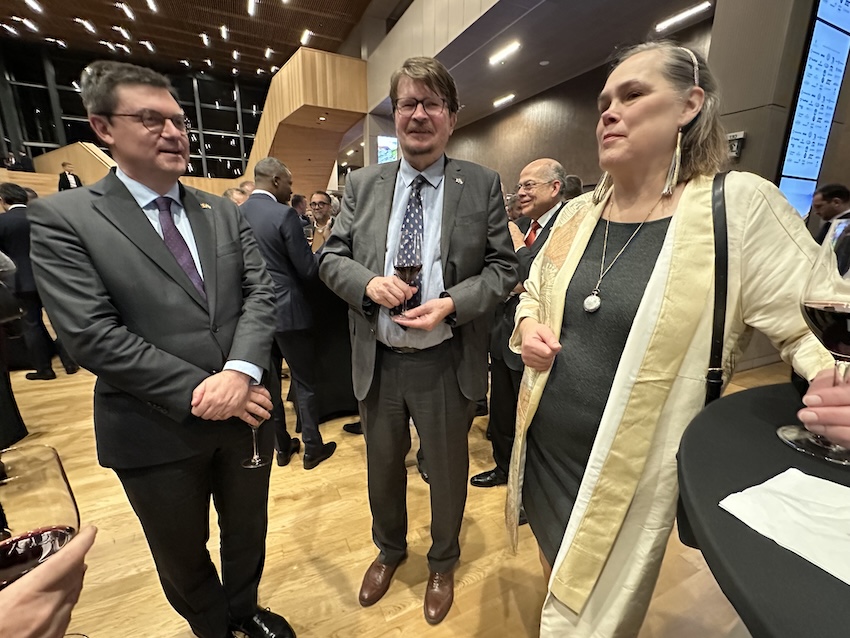
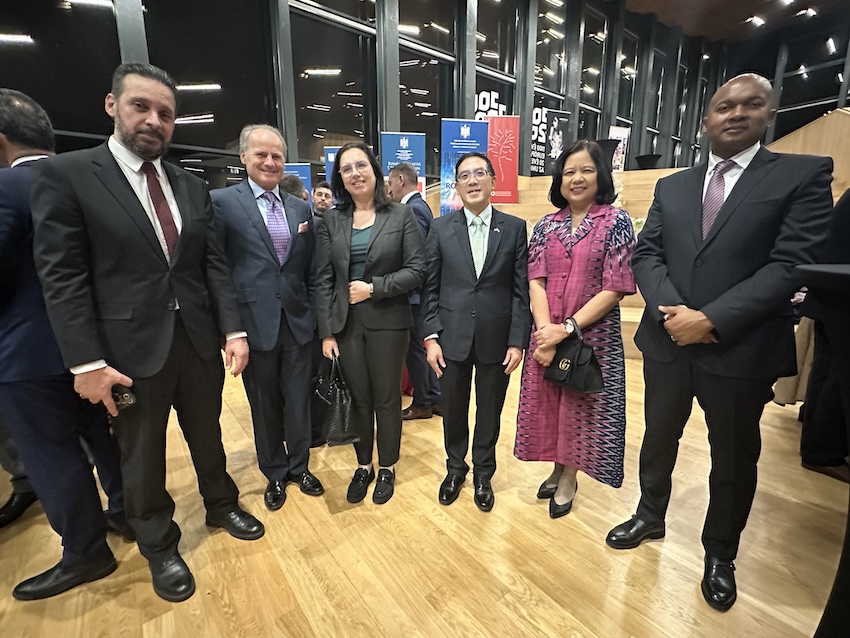
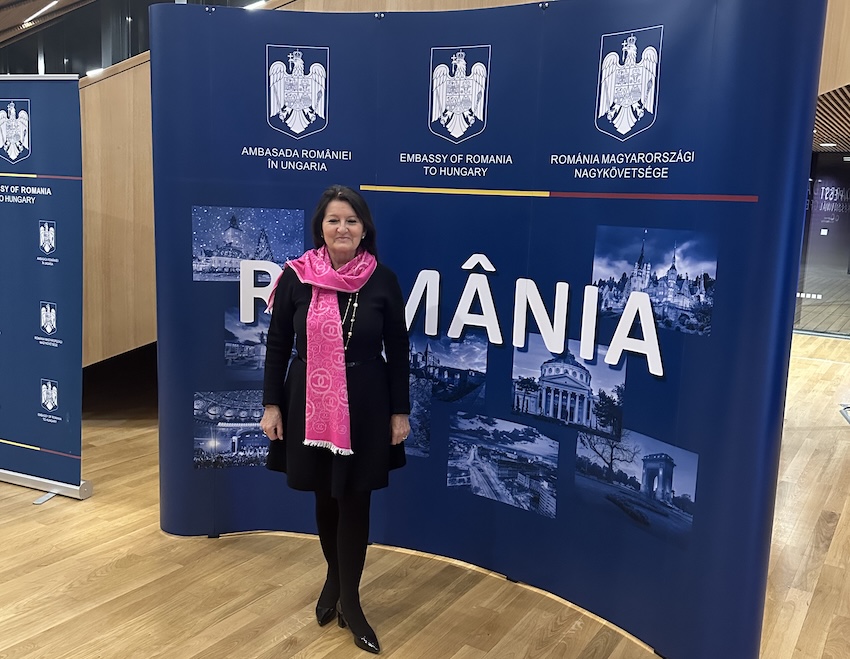
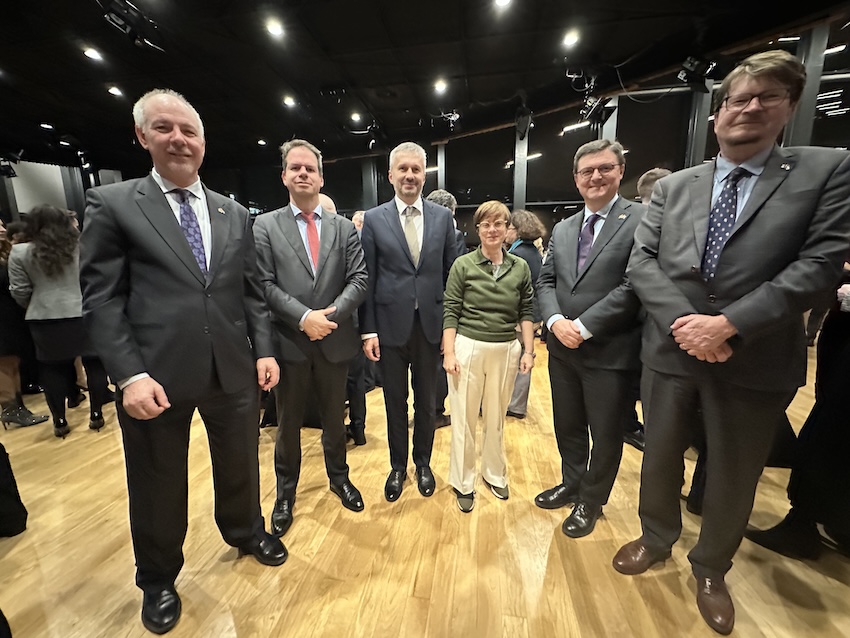
The event commenced with the national anthems of Romania, Hungary and the European Union.
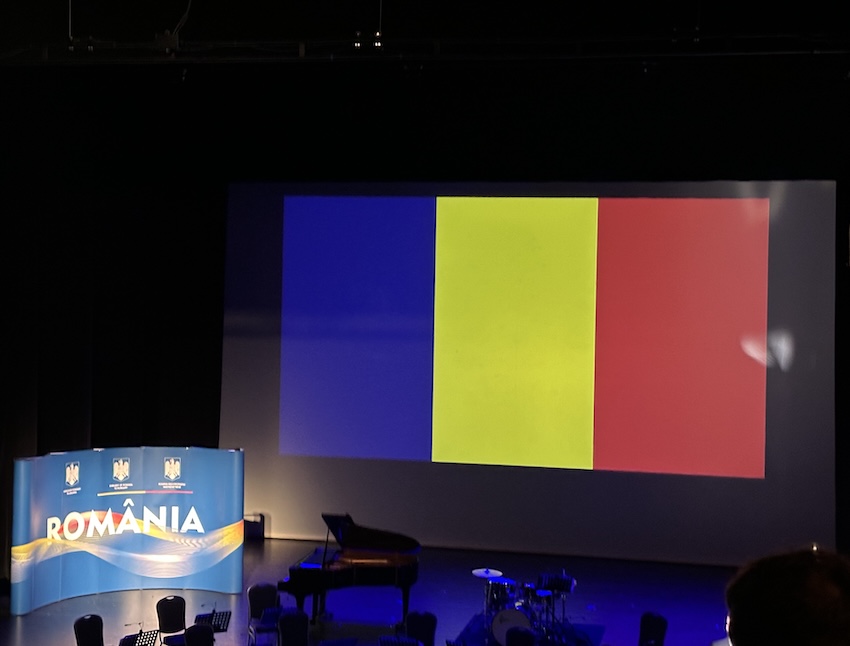
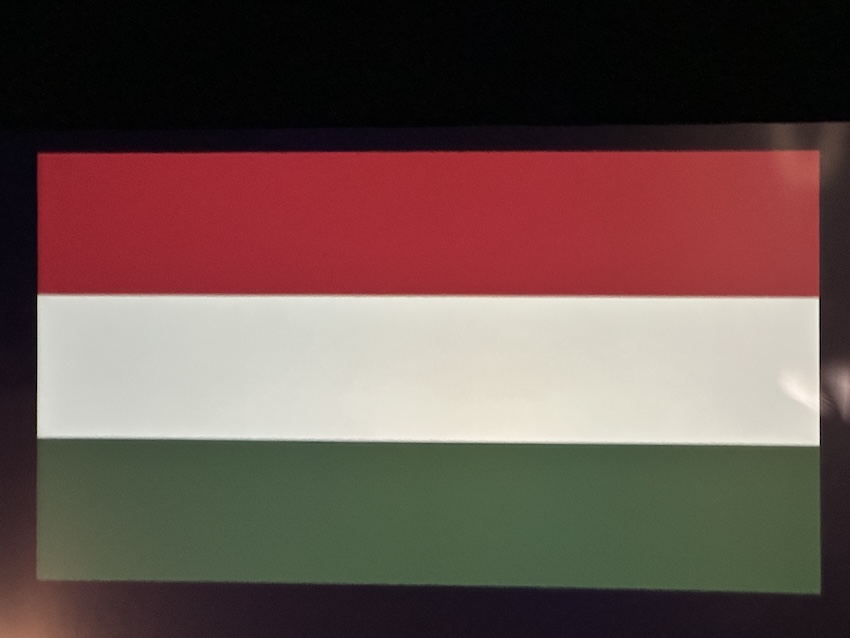
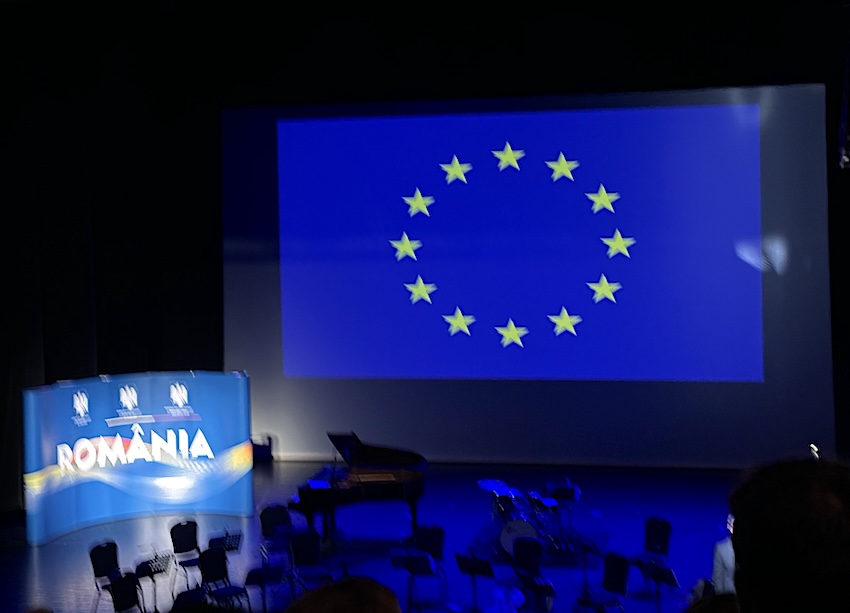
His Excellency Gabriel Șopandă, Ambassador of Romania to Hungary, then addressed the audience, delivering heartfelt greetings and a speech dedicated to the significance of the day:
“Ladies and Gentlemen,
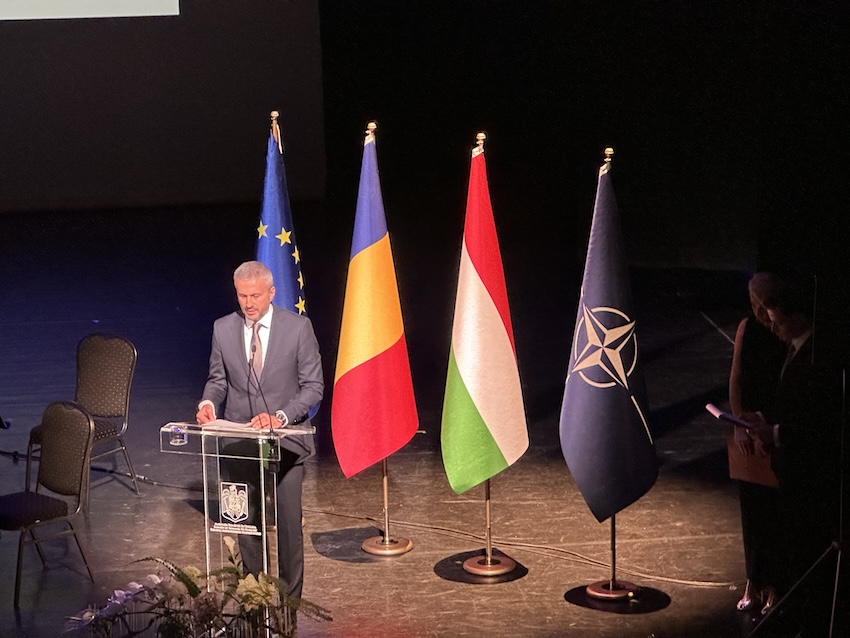
We live in a changing world, where the National Day, celebrated by all Romanians on 1 December, remains the symbolic milestone of the achievement of a historic goal through solidarity.
In an early watershed moment of the modern world, the sacrifice of Romanian soldiers in World War I propelled the ideals that had existed in the consciousness of Romanians for centuries.
Romania became a unitary state by the decision of its inhabitants in the historic provinces. Modern and contemporary Romania has developed within its historical borders, as established by the free will of the Romanian people, and has consistently made significant efforts to ensure proper conditions for the security, development and prosperity of all its citizens.
Thirty-five years after the fall of the Iron Curtain and the Romanian Revolution, when democracy replaced totalitarianism, we find ourselves in a complex international context affected by the illegal, unjustified and unprovoked aggression of the Russian Federation against Ukraine, by instability and by the rise of radicalism.
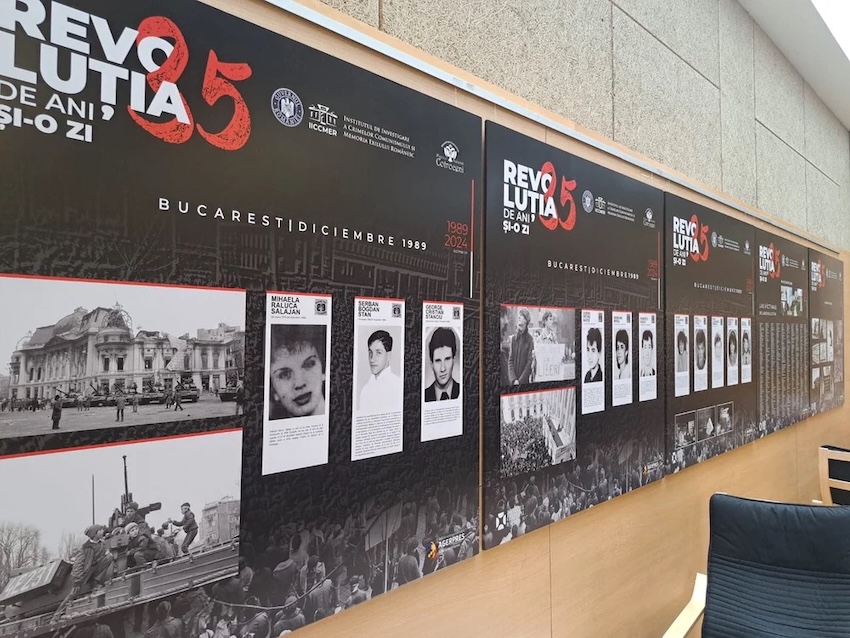
We do not choose for ourselves the world we live in, but each country can contribute to making it better. We are facing new challenges and threats, as revisionist state actors increasingly resort to hybrid tools and intensify disinformation and propaganda.
We are experiencing the most complicated times since the WWII. In this world, Romania remains consistent with the two dimensions considered for its development: European construction and transatlantic cohesion. Two coordinates that are closely linked to Romania’s assumed and applied democratic option. By conducting foreign affairs engrained in European and transatlantic democratic values, Romania participates in an essential manner to maintaining Europe’s security, by providing strong and multidimensional support to Ukraine and its citizens for as long as needed, and by constructively contributing to security in the Black Sea region and on NATO’s Eastern Flank.
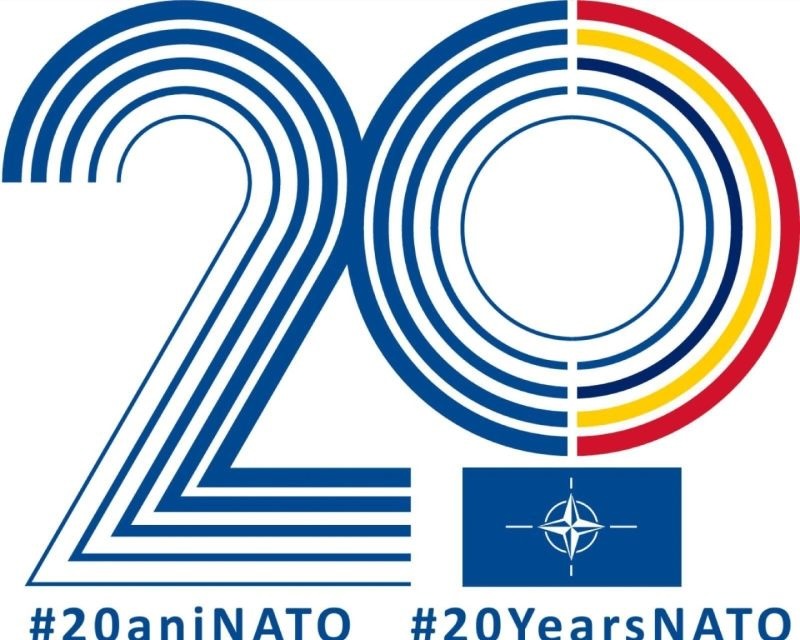
We are part of the strongest collective security Alliance, NATO, which secures one billion people under its protective umbrella. Romania has celebrated this year 20 years of NATO membership, while the North Atlantic Treaty Organisation itself celebrated its 75th anniversary. This status has strengthened our strategic profile as a state that promotes transatlantic values, actively advocates the open-door policy, and supports partners who share the same principles and values.
Romania’s objective of providing and strengthening security in the region includes supporting the European future of the Republic of Moldova and Ukraine, as well as that of Georgia and partners in the Western Balkans, as an expression of a consistent and pragmatic regional approach.
Romania maintains its full support for the transatlantic cohesion and for strengthening the strategic partnership with the United States of America.
Romania’s commitment to promoting European solidarity, cohesion and unity remains firm, as does its belief in the important role of joint action and coordination of efforts among EU Member States. The implementation of an ambitious European agenda is imperative in order to enhance the EU’s global role, aiming to ensure sustainable security, long-lasting prosperity and the well-being of its citizens.
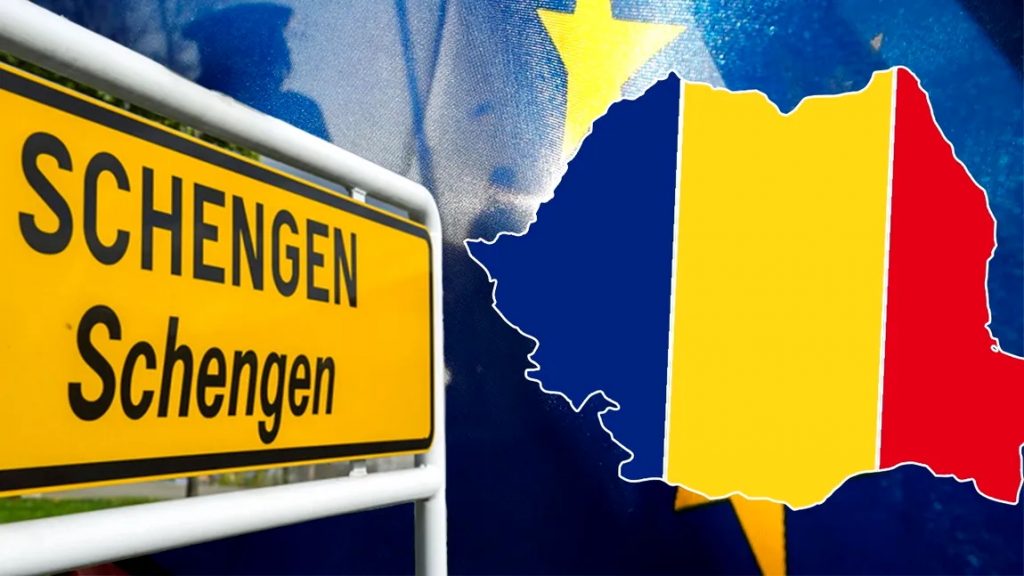
Dear Guests,
in 2024, Romania took an essential step – joining the Schengen area with sea and air borders.Achieving our country’s goal of integrating into this space also with land borders can be concrete proof with long-term effects regarding the decisions that are in the hands of political leaders, for the benefit of all European citizens.
Romania supports all diplomatic efforts to prevent a regional escalation of the conflict in the Middle East following the terrorist attack on 7 October 2023 and the release of all hostages. We endorse the imperative need to ensure a continuous flow of humanitarian aid. Romania strongly supports the respect of international law and international humanitarian law.
In its relation with Hungary, Romania remains engaged to strengthening the high-level political and sectoral relations that have been boosted by Hungary’s Presidency of the Council of the European Union in the second half of this year.
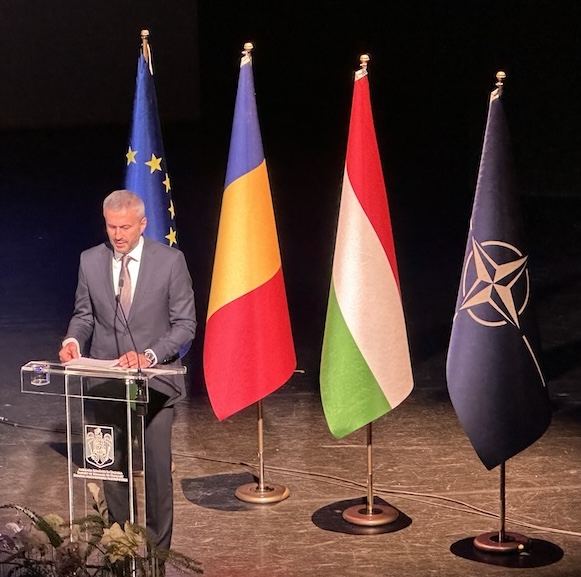
Bilateral economic relations have settled at a natural and normal pace for two neighbouring countries, which share a border of more than 450 kilometres, and this component adapts to the regional and global context that influences the political, economic and social environment.
Although the trade balance is slightly below the record level of 2022 (€15 billion), the outlook remains positive. In the fields of energy and transport, dialogue has steadily developed this year as well, with the two countries striving to increase their interconnected capacities.
The existence of an ethnic community of one state in another neighbouring state is an exercise of mutual knowledge, and respect for the rights of minority citizens is another level for mutual understanding. The preservation of the Romanian language and specific elements of Romanian culture in the historic Romanian community in Hungary represents the pillars that Romania aims to support, but we also need a concrete and constant effort from the members of the community.
Ladies and gentlemen,
Together with the Embassy team, colleagues from the Consulates General in Gyula and Szeged, as well as from the Romanian Cultural Institute, it is an honour for me to represent Romania in Hungary. Thank you for joining us again this evening to celebrate the National Day of Romania together! I am also grateful to our sponsors, whose generosity made this event possible.”

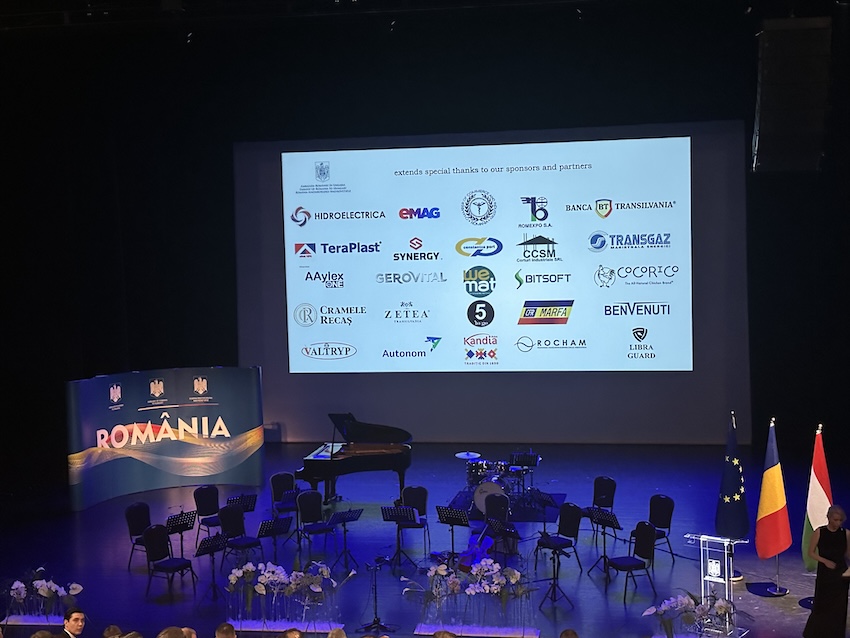
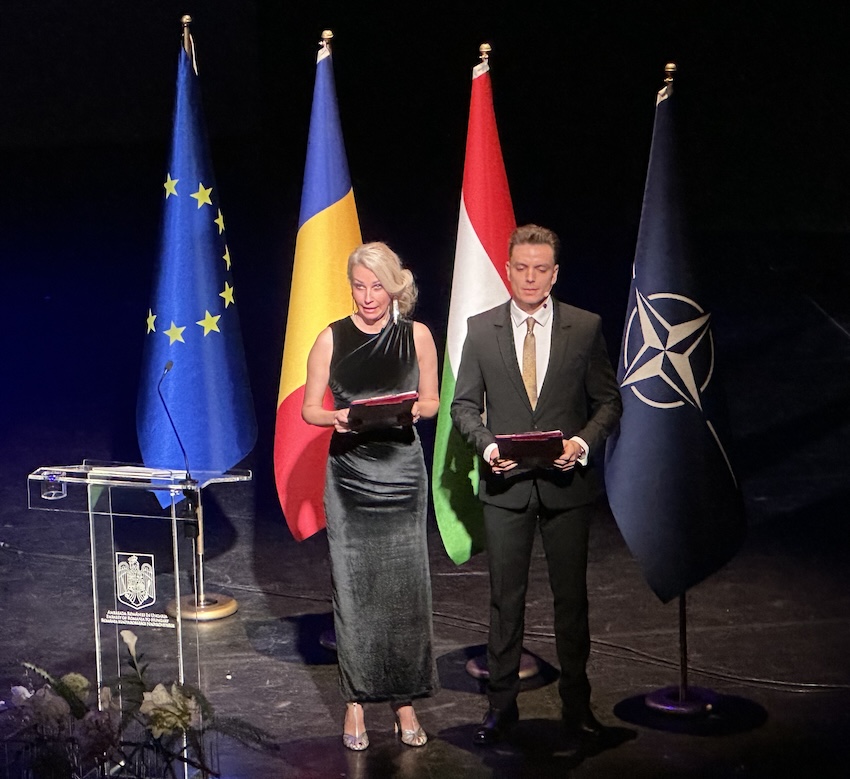
A Grand Success: Violoncellissimo Shines at Budapest Concert
As part of Romania’s National Day celebrations, guests were invited to an exceptional concert by the renowned Romanian chamber ensemble Violoncellissimo, held on the stage of the Hungarian National Dance Theatre. The performance enchanted the audience, who rewarded the musicians with enthusiastic applause and a standing ovation.
Led by the acclaimed cellist Marin Cazacu, Violoncellissimo presented a diverse and dynamic program with works by Johann Schrammel, Georg Friedrich Händel, Béla Bartók, Constantin Dimitrescu, Astor Piazzolla, Camille Saint-Saëns, Radu Sinaci, and even Coldplay. Fourteen musicians – twelve cellists, a pianist and a drummer – delivered a delightful blend of classical masterpieces, contemporary pieces, and unique arrangements, resulting in a truly original performance.
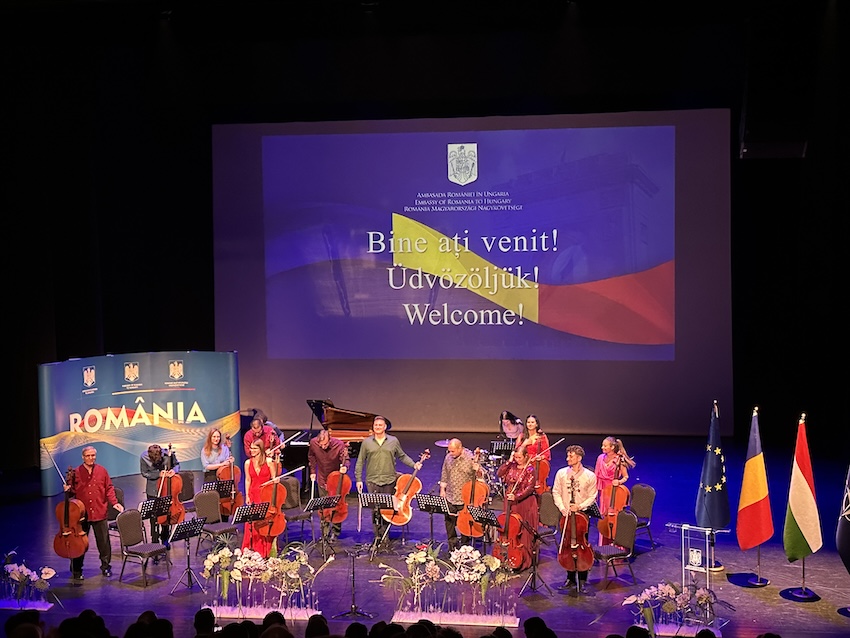
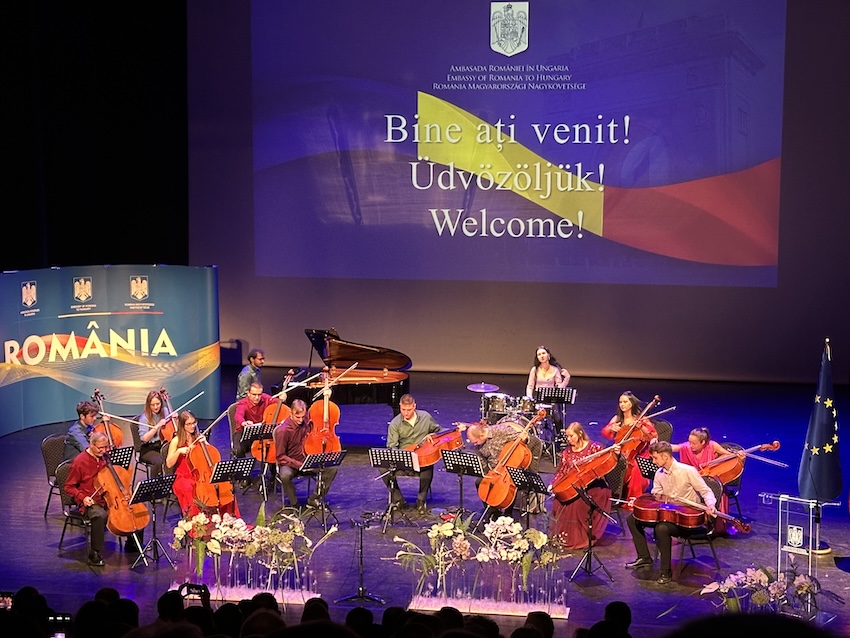
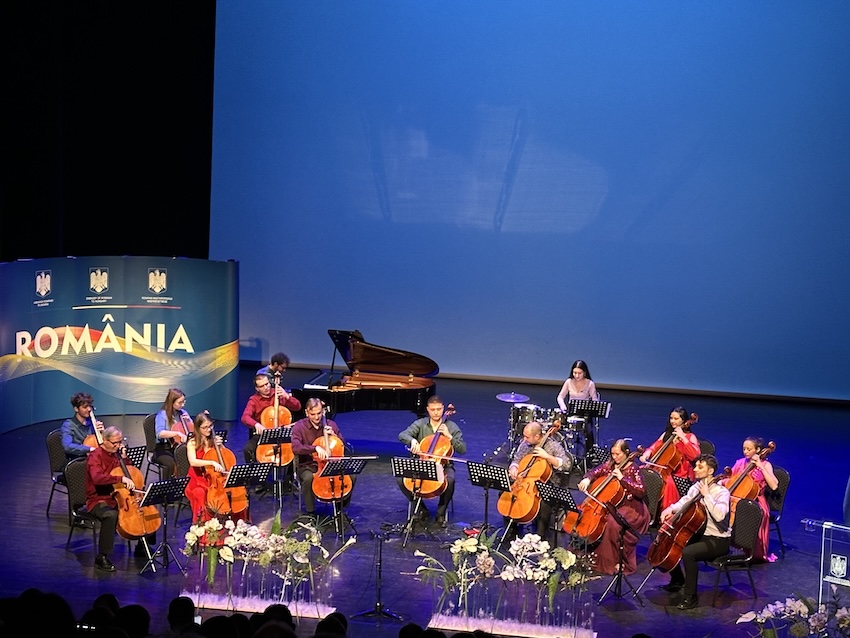
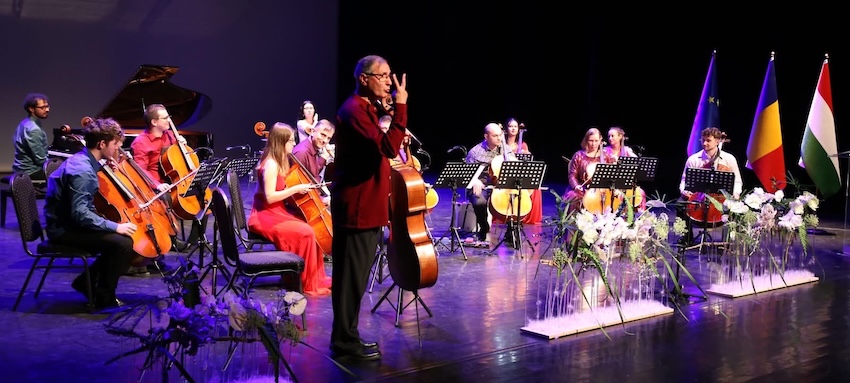
Founded by Marin Cazacu, Violoncellissimo is celebrated as one of Romania’s premier chamber ensembles. The group, composed of current and former students, was founded to promote chamber music and highlight young Romanian talent. Known for its versatility and innovative performances, the ensemble has earned a stellar reputation in Romania and abroad. In recent years, they have performed in Washington, Brussels, Prague, Barcelona, Oslo, and Luxembourg, captivating audiences with their artistic brilliance and spectacular concerts.
Marin Cazacu, the ensemble’s founder and mentor, is the General Director of the George Enescu Philharmonic in Bucharest and cello professor at the National University of Music in Bucharest. With an illustrious career spanning performances with legendary artists such as Ghennadi Rojdestvenski, Sergiu Comissiona, Antoni Ros Marbà, Jeremy Menuhin, Radu Aldulescu, Horia Andrescu and Vladimir Orlov, Cazacu has also graced international festivals in Berlin, Milan, Hong-Kong, Macao, Munich, Osaka, Seoul and Tokyo. Additionally, he founded the National Youth Orchestras of Romania in 2008, further solidifying his dedication to nurturing musical talents.
The Budapest concert not only showcased Violoncellissimo’s artistic excellence and spectacular interpretation, but also underscored their ability to bridge cultures through the universal language and power of music.

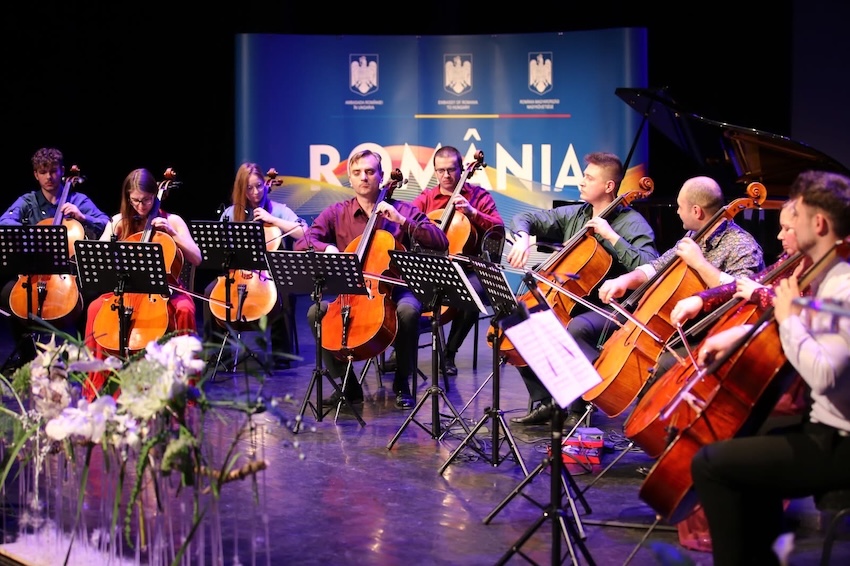
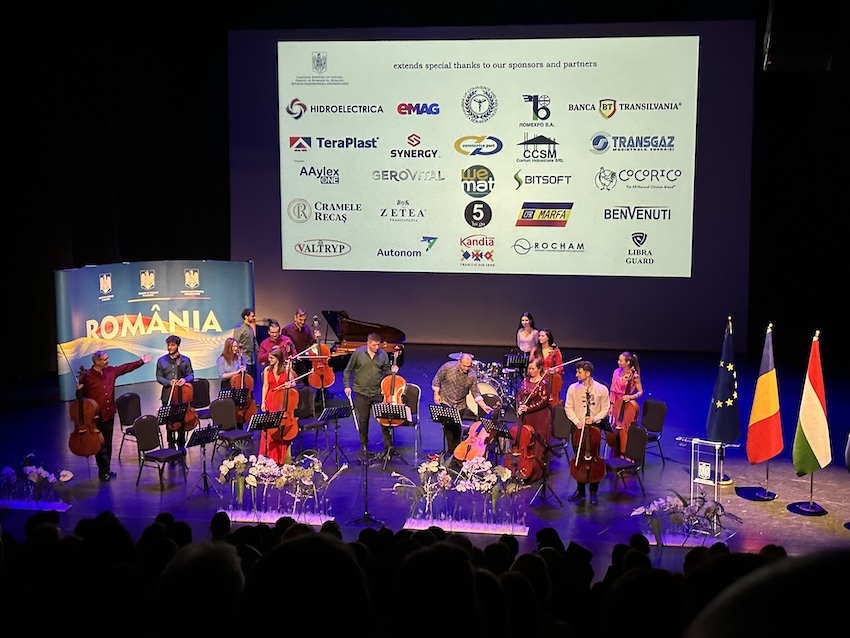
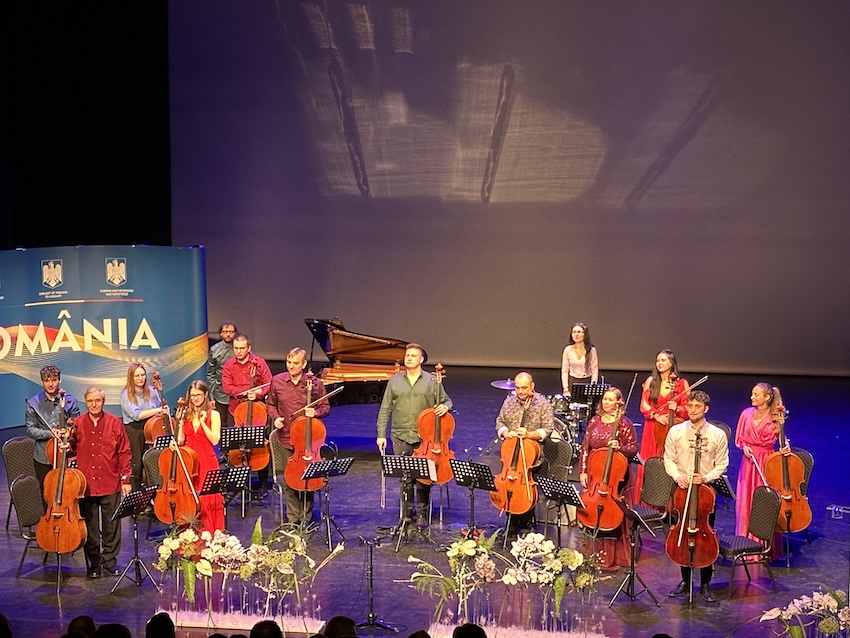

The evening concluded with a gracious reception in the theatre’s foyer, where invitees enjoyed the friendly atmosphere, enriched by the impressive musical experience.
Craiova Christmas Market – A Touch of Magic
As Christmas approaches, it is worth celebrating the remarkable success of Craiova, a Romanian city that secured second place in the annual “European Best Destinations 2025” competition for the most beautiful Christmas markets. This prestigious recognition highlights the impressive growth of the Craiova Christmas market, which now spans over 280,000 square meters, making it the largest Christmas event in Europe, open until 5 January 2025.
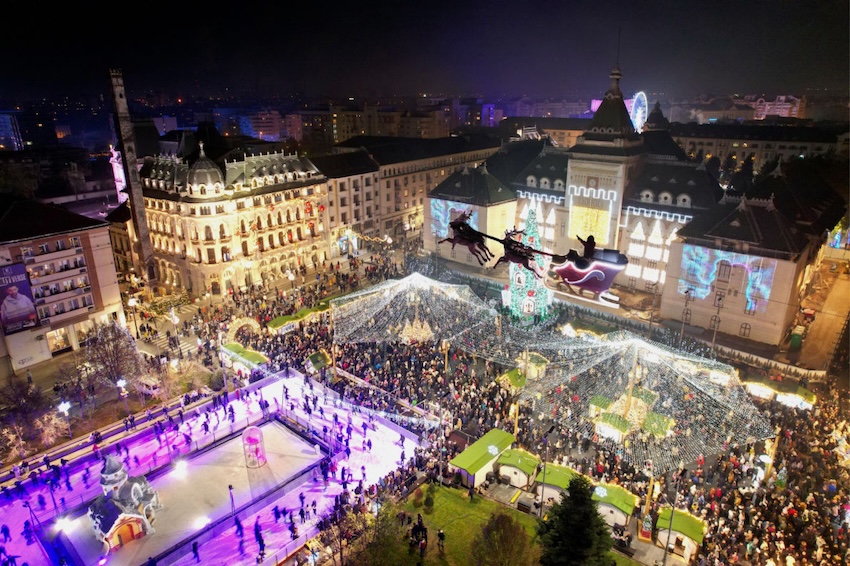

Craiova has truly earned its title as the Christmas Capital of Romania, and a leading festive destination in Europe, following the winning Christmas Market in the fairy-tale setting of Gdansk, Poland. In the rankings, based on more than 753,000 votes from travellers worldwide, Craiova was followed by Geneva (Switzerland), Riga (Latvia), and Asti-Govone (Italy) according to the expert travel website “European Best Destinations”.
https://www.europeanbestdestinations.com/christmas-markets/craiova
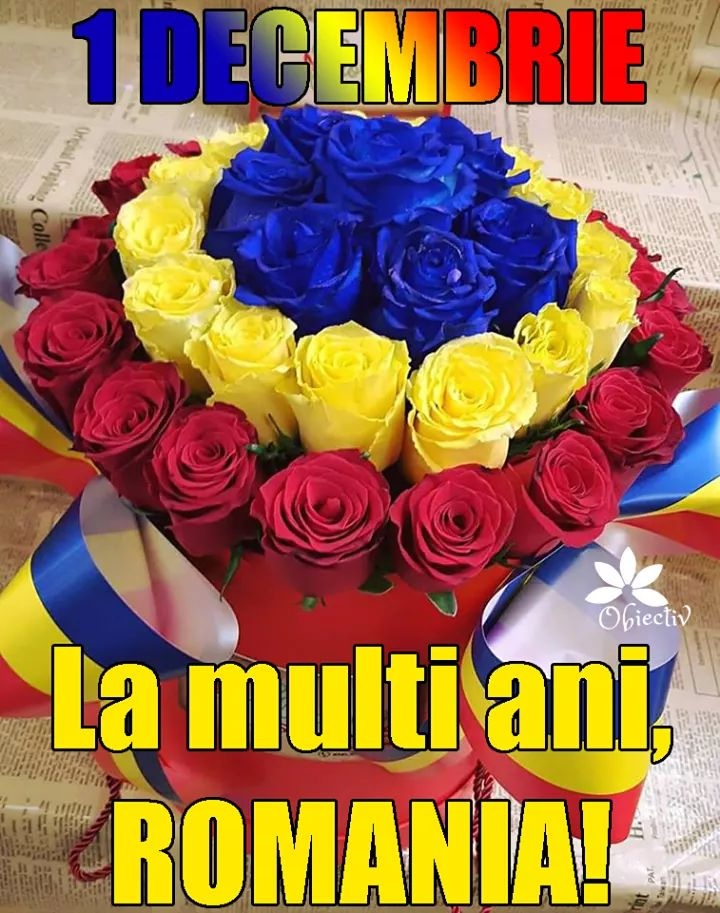
Source: Embassy of Romania in Budapest
Photos by the Romanian Cultural Institute (ICR) in Budapest, violoncellissimo.ro, DPA


